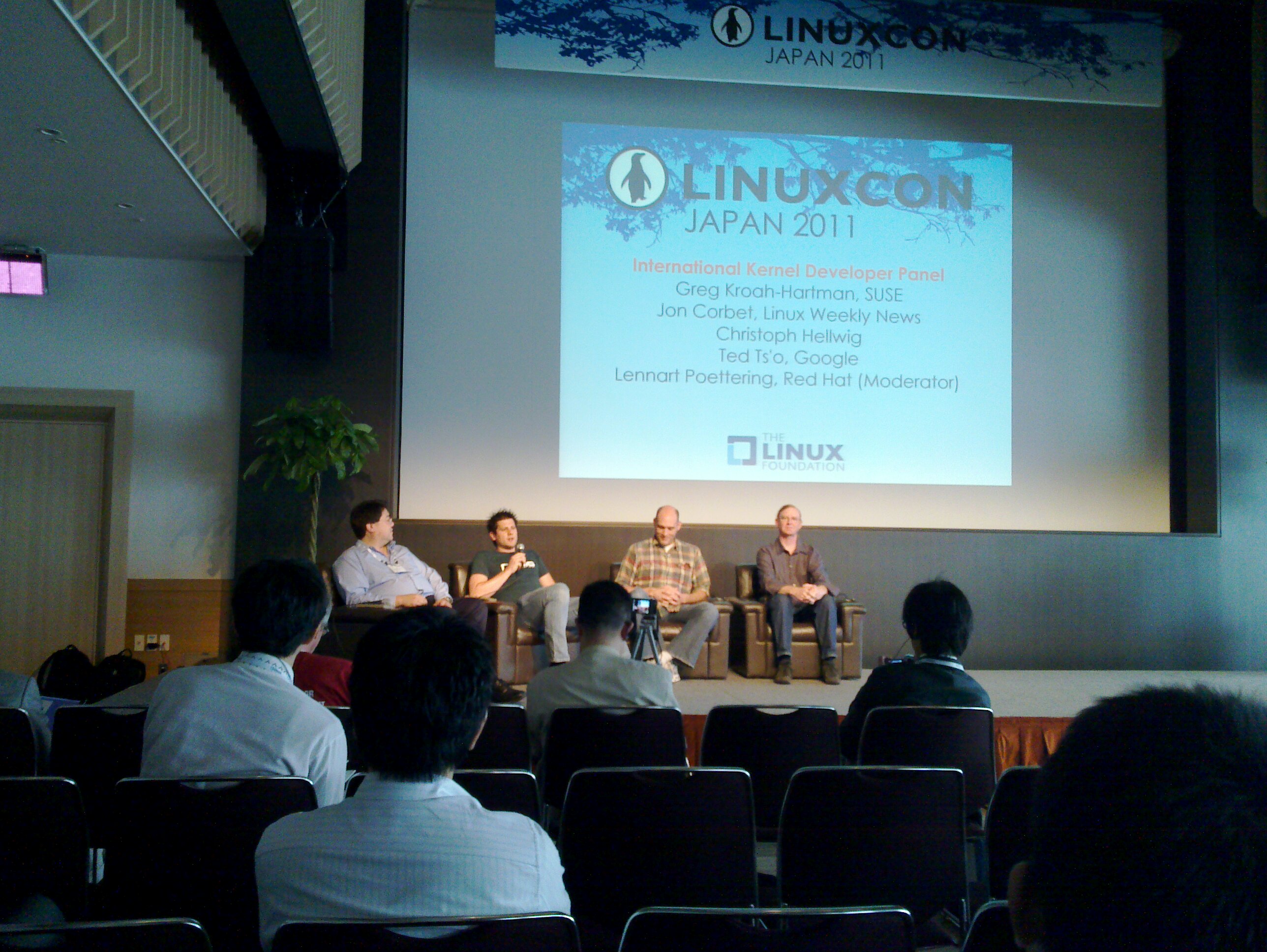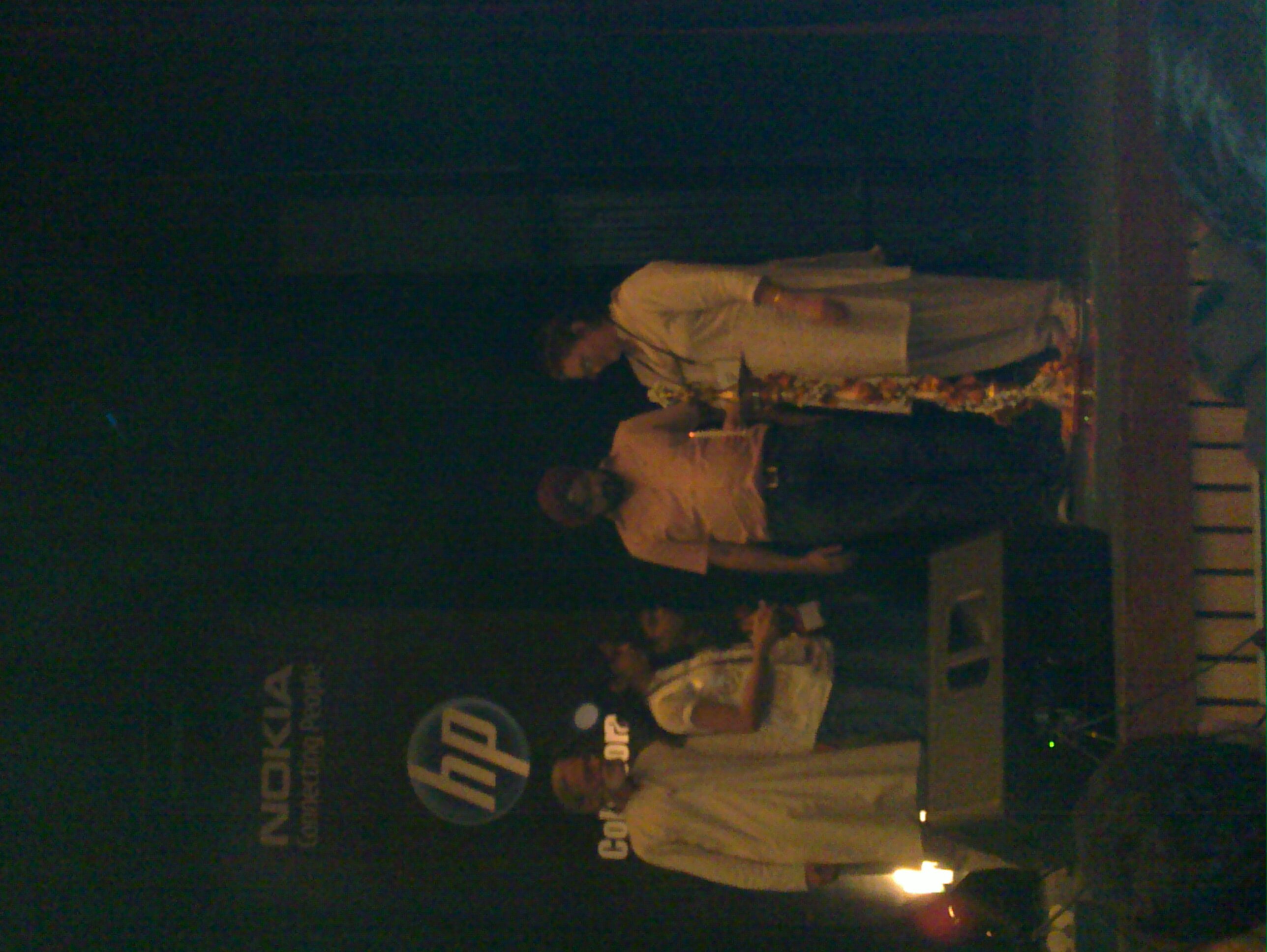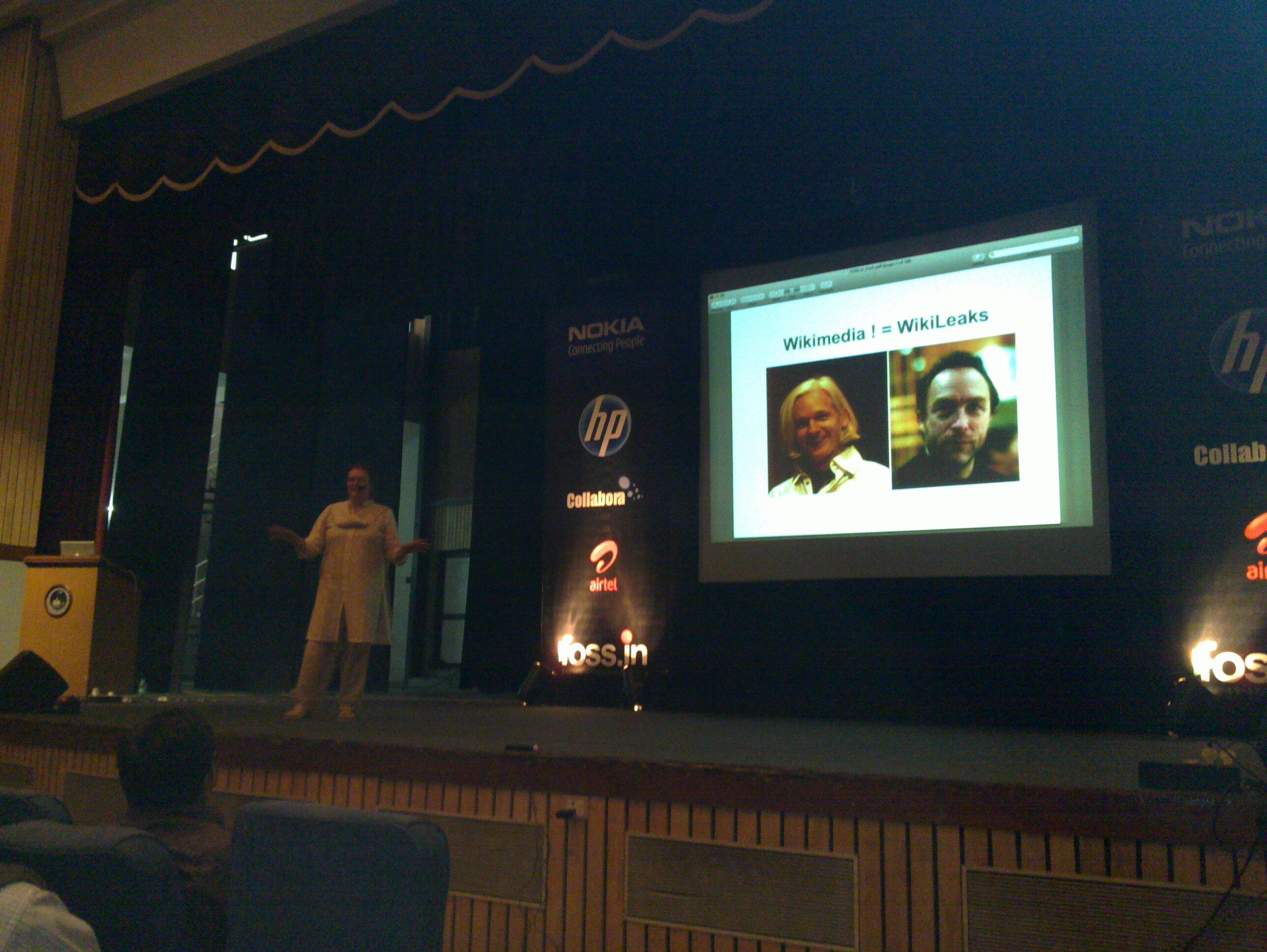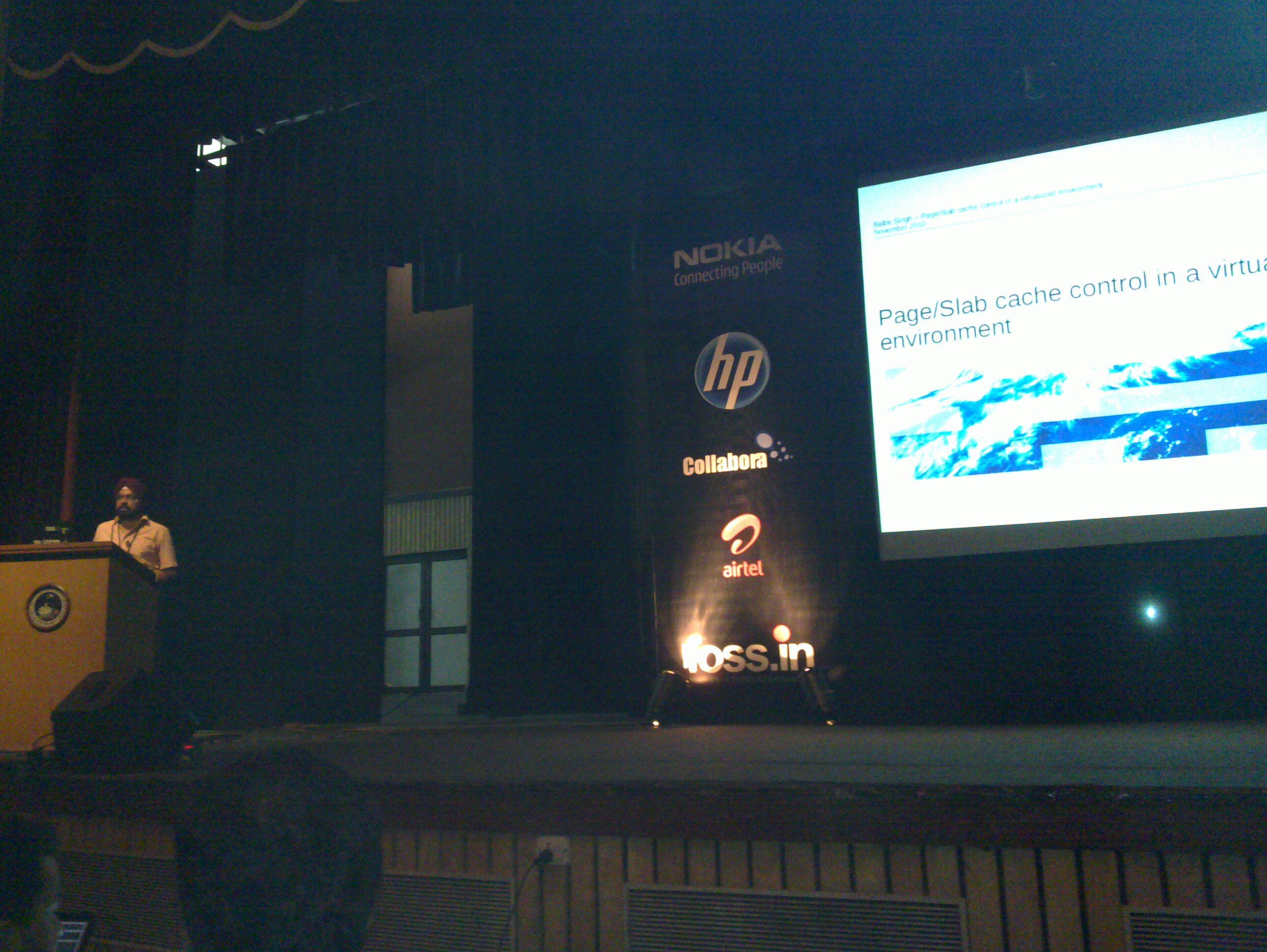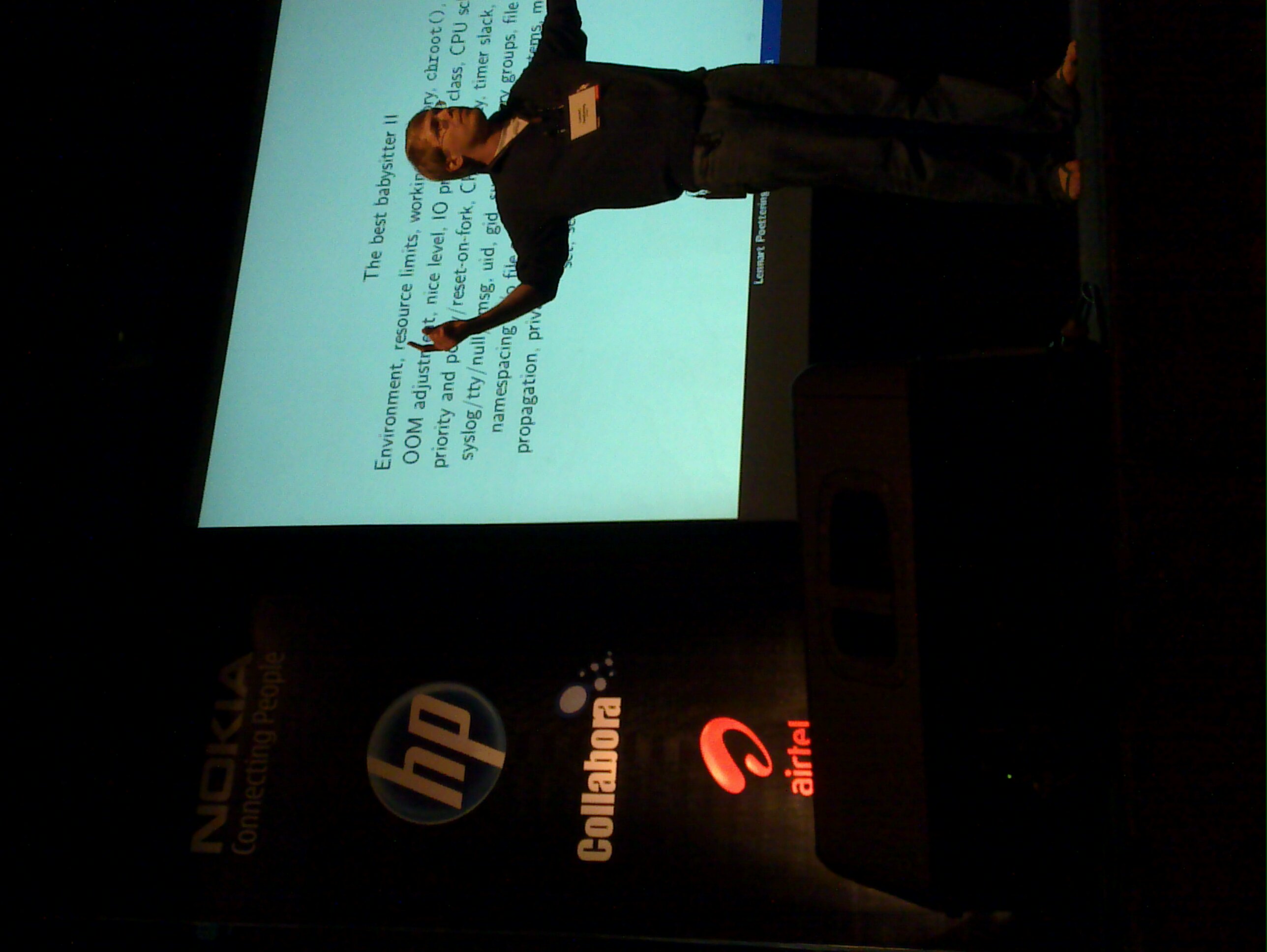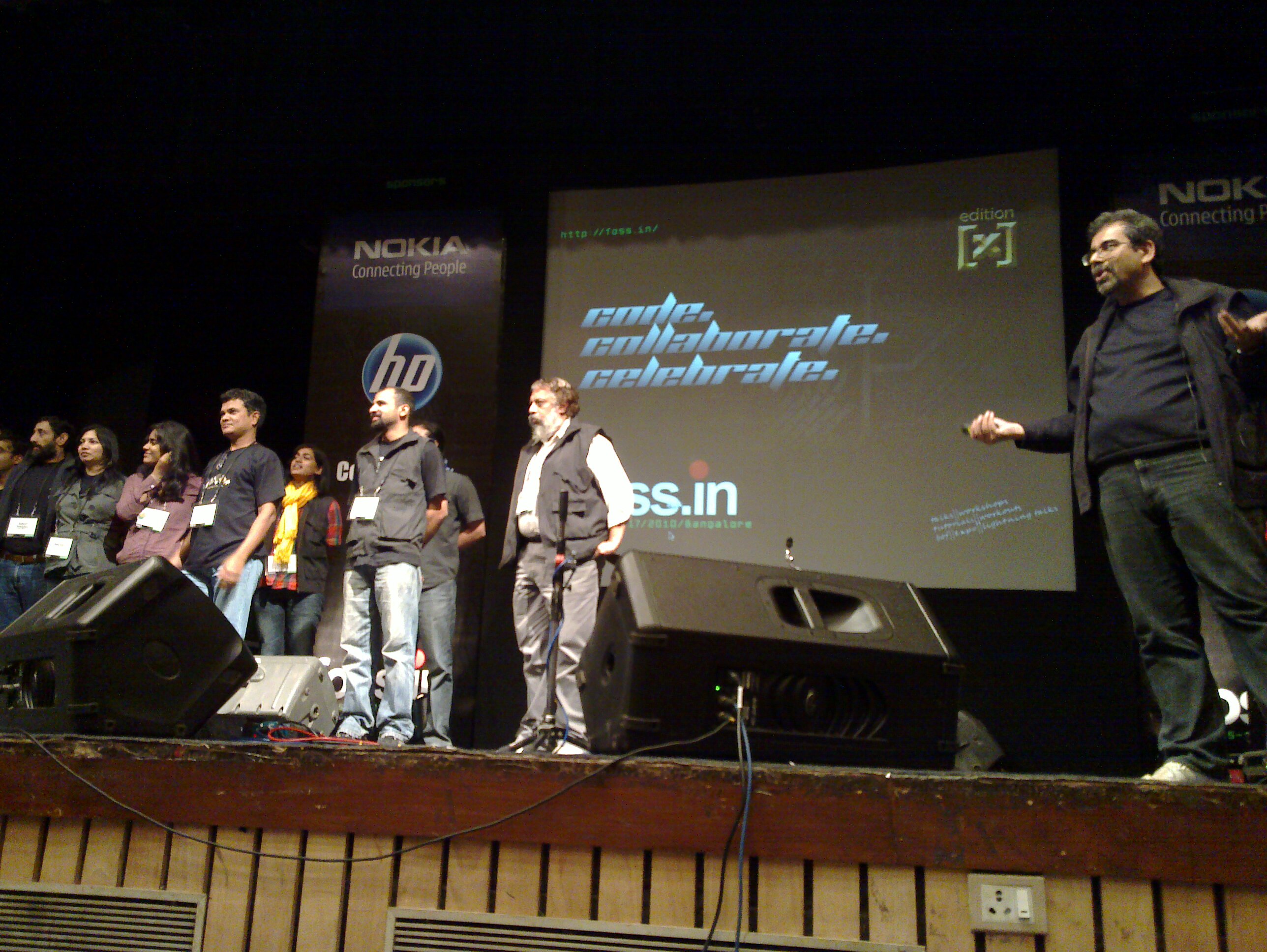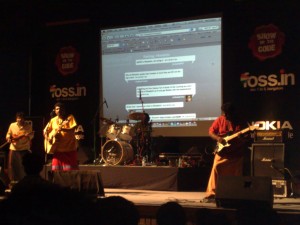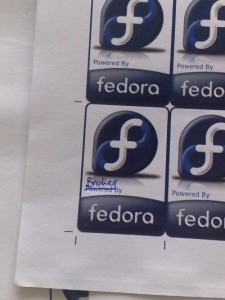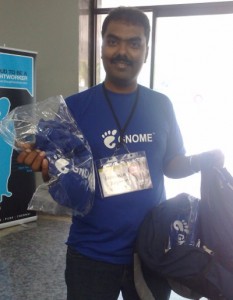I was lucky to be invited to LinuxCon Brazil, taking place in *drumroll* Brazil! Sao Paulo to be precise. The conference centre was very spacious and the conference itself seemed to be much bigger than in Japan.
My talk on GNOME 3 (actually 3.2 and 3.x) was well received and I hope I was able to entertain a bunch of people and make some of them try the new GNOME. Fortunately, our friends from OpenSuSE just released their new version a couple of days ago and brought some machines and media to try it out. Needless to say that it features the latest and greatest GNOME release. We had a good discussion during the talk and I talked to many people after the talk. There was more interest that I expected. I was told that even Linus and Dirk Hohndel commented on it in the speaker’s room when I was not there.

I couldn’t really attend the other talks as I wanted because they were held in Portuguese :-\ There was translation but only for the foreign speakers not talking in Portuguese. So sadly I had to stick to talks that I either knew or didn’t interest me that much. But there were a couple of interesting ones, nonetheless 🙂 My favourite was Jan Kiszka talking about “Developing Linux inside QEMU/KVM Virtual Machines” because I learned how to actually be able to pass data from my host system into my guest QEMU machine.
So the conference could have made more effort to actually indicate whether the talks were held in English or not. Other than that, it was a good conference which was held in a pretty good conference centre. As the other South American conference I attended a couple of weeks ago, it slipped behind schedule. But only for half an hour 😉
It wasn’t all too easy to get to Brazil though. I had flight troubles in Amsterdam with KLM again. The security at the gate wanted to search my bag but I refused. I was told to either let them search the bag or wait for the supervisor. I chose to wait as I had quite a bit of newspaper left. Eventually one of the security guys called me out and told me to go out of the gate area to talk to the supervisor. We talked and came back to the gate where I was about to put my stuff into the xray machine. But then the guy came and told me that the flight attendant told him that I couldn’t fly. So I asked the woman directly whether I was denied boarding. She said yes because I caused a queue. I demanded a list of my rights because I was denied boarding and she sent me to the Transfer desk. Then she left… When I went to the transfer desk, I figured out that I was not referenced as being denied boarding but No-Show, i.e. I just wasn’t present. But that’s ridiculous as I sat in the gate except for three minutes when the supervisor called me out. For that reason, I wasn’t provided a list of my rights and the transfer agent wasn’t friendly at all. A second transfer agent managed to get me on the next flight though. I thought I’d like KLM, at least for them flying to South America not crossing the US. But I probably have to go with Iberia the next time.

I’m looking foward to come back to Brazil, either for GNOME Forum or for LinuxCon 🙂


